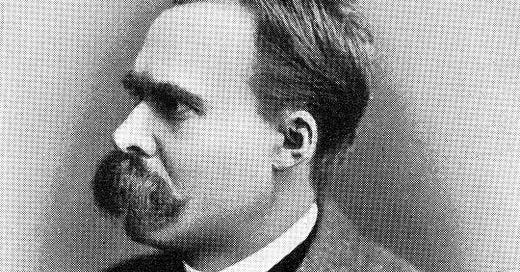How to Write: Friedrich Nietzsche's 10 rules for impactful writing and rich language
The great philosopher wrote 15 books and built a reputation for delivering powerful ideas in few words.
Friedrich Nietzsche (1844-1900) had one of the sharpest philosophical and psychological minds in history. He made a name for himself in delivering towering ideas in powerful prose.
The German thinker is best known for his books on human nature and existentialism, including Beyond Good and Evil, The Gay Science, and Thus Spoke Zarathustra. Academics and general readers alike look to his work as milestones in contemporary thought, even though they are largely critical of philosophers, philosophy, and the West.
Penning fifteen books before his death, Nietzsche was a prolific writer. Scholars have commended him for the impact of his language and his ability to communicate complex ideas with brevity. Indeed, Nietzsche himself famously wrote: "It is my ambition to say in ten sentences what others say in a whole book.”
In 1882, he wrote out ten rules of writing across a series of letters to the Russian-born writer, Lou Andreas-Salomé, the first female psychoanalyst. Nietzsche saw the 21-year-old as something of an intellectual protégé, but also as a potential lover.
Andreas-Salomé’s didn't take to the German philosopher's offer of marriage, but the two remained friends. Nearly two decades later, she penned Nietzsche, and included his ten rules for writing under the heading, "Toward the Teaching of Style."
Here are Nietzsche's commandments:
Of prime necessity is life: a style should live.
Style should be suited to the specific person with whom you wish to communicate. (The law of mutual relation.)
First, one must determine precisely “what-and-what do I wish to say and present,” before you may write. Writing must be mimicry.
Since the writer lacks many of the speaker’s means, he must in general have for his model a very expressive kind of presentation of necessity, the written copy will appear much paler.
The richness of life reveals itself through a richness of gestures. One must learn to feel everything — the length and retarding of sentences, interpunctuations, the choice of words, the pausing, the sequence of arguments — like gestures.
Be careful with periods! Only those people who also have long duration of breath while speaking are entitled to periods. With most people, the period is a matter of affectation.
Style ought to prove that one believes in an idea; not only that one thinks it but also feels it.
The more abstract a truth which one wishes to teach, the more one must first entice the senses.
Strategy on the part of the good writer of prose consists of choosing his means for stepping close to poetry but never stepping into it.
It is not good manners or clever to deprive one’s reader of the most obvious objections. It is very good manners and very clever to leave it to one’s reader alone to pronounce the ultimate quintessence of our wisdom.
Complement this reading with Henry Miller's timeless advice for writers, Gertrude Stein's lessons from living abroad as an author, and Zadie Smith's rules of creativity and clear language.




